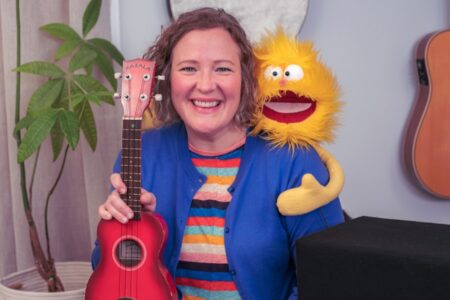Before sixth grade even started, the rumors swirled. Everyone said Mrs. Lamb was tough, mean, and scary. Even guys from other schools knew her students were prisoners. But there was no bread and water. Instead, she was all about journal writing and telling stories.
One night at a Boy Scout meeting, I remember her own son saying, “Good luck with the witch.” There were legendary teachers, and then there was Mrs. Lamb. She had a category all to herself. The word on the street was if you could survive her class, you were a little bit closer to becoming a man.
So when I got my class schedule and saw that I had first period English with the most feared teacher in town, I knew that the end was near. The only potential good news was that I would be getting my sentence done in the morning, before the heat kicked in and the unairconditioned school made everyone fight like Greasers and Socs over access to the oscillating fan and the water fountain.
With her starched collar and manicured hair, Mrs. Lamb looked like a polished and professional warden. We would obey her commands. She never yelled or seemed flustered. Her power came from her passion for the subject and expecting the best out of everyone. Even more than the subject itself, she created a world of devotion to hard work.
The first “F” confused me. When there were two more, I blamed myself for not being a reader. Most of the time, I lost interest in books, spaced out, or forgot the chapter’s plot by the time it was over. I wanted to be the kind of student who understood a novel’s complexities, but I didn’t.
With the failing marks stuffed inside my backpack, my dad offered a remedy to help me understand Robert Louis Stevenson’s search for gold coins. The answer was our family’s first VCR, a sleek, space-aged Magnavox that brought cinema into our living room. The added bonus was him signing us up for a movie membership and immediately renting Treasure Island (the 1950 Disney version with Bobby Driscoll). Just in case the movie didn’t work, he also found some CliffsNotes to help me along with the story. Then he gave me a highlighter, and we went to work, chapter by chapter, chasing Jim Hawkins and Billy Bones. It wasn’t just the movie that helped, but implementing Mrs. Lamb’s method: slow down, pay attention, and read with a pen in your hand.
As the months passed, Mrs. Lamb’s class still brought heartache. There were no CliffsNotes for The Trumpeter of Krakow. And learning how to decode gerunds from participles resulted in solitary confinement. Alone in my room, I practiced, studied, and tried to figure it all out.
But every Friday, there were little shifts in my understanding. These tremors increased over time into a seismic wave that spilled over into my black and white marbled journal. Her prompts were open-ended and much different from the stringent grammar and reading comprehension quizzes. Plus, she encouraged me: Not bad. This works. Keep going.
Her words taught me how to write and to push myself. I created my own worlds and wrote about BB guns, go-karts, and M-80s. At first, the writing was like a hesitant engine, until a switch was flipped, and then, the perfect combustion of inspiration and creativity fired me up. The sentences roared to life. With a little more Mrs. Lamb’s fuel of encouragement, the V-6 was up and running.
By the end of sixth grade, I learned that Mrs. Lamb wasn’t mean. She just demanded a lot from her students. With a few comments in the margin, she pushed me to pay attention to the story and to become a better writer. When she said you did well, it really meant something.
In a bizarre twist, fifteen years after sitting in Mrs. Lamb’s classroom, I ended up at the same school, a few feet away from my old student desk and teaching the very class she brought to life for me. I saw myself in many students who didn’t get the book, who spaced out, and who stared out the window. Like Mrs. Lamb, I realized quickly that it was my job to encourage them while also setting the bar high.
More bizarre still, a year ago, after two decades of teaching, I discovered that Mrs. Lamb’s granddaughter was a student in my British literature class. The parallelism woke me up once again, making me want to thank my mentor for igniting the writing spark that has since swelled into an inferno.
I sent an email, and within an hour, I had a reply. I was the teacher, but more powerful still, I was also the student all over again.
She wrote, “I am reminded of my own high school English teacher, whom I loved and feared. She took me in her tiny office one day and emphatically told me that I loved writing. I, of course, agreed with this revered woman even though I did not know that I loved writing at the time. Her classroom was a writing-centered one and my model. My attachment to black and white composition books began with her and continues. (Today) my students are all immigrant children living below the poverty line. I love it. You might be interested to know that every session begins with a short writing prompt. Most of these children have never really had a ‘free write’ and been praised for the results. My teaching mantra has become ’write to learn, write to grow, read to write.’”
My son Atticus now learns in the same building where Mrs. Lamb made a difference for me. Like I did, he will find his way as a middle schooler. Sometime soon – maybe this year even – a teacher will push and challenge him – further than ever before.
But down the road, he will thank her for changing the way he looks at the world, or maybe even for the way he writes about it.
Sometimes the things that we fail make us who we are.







